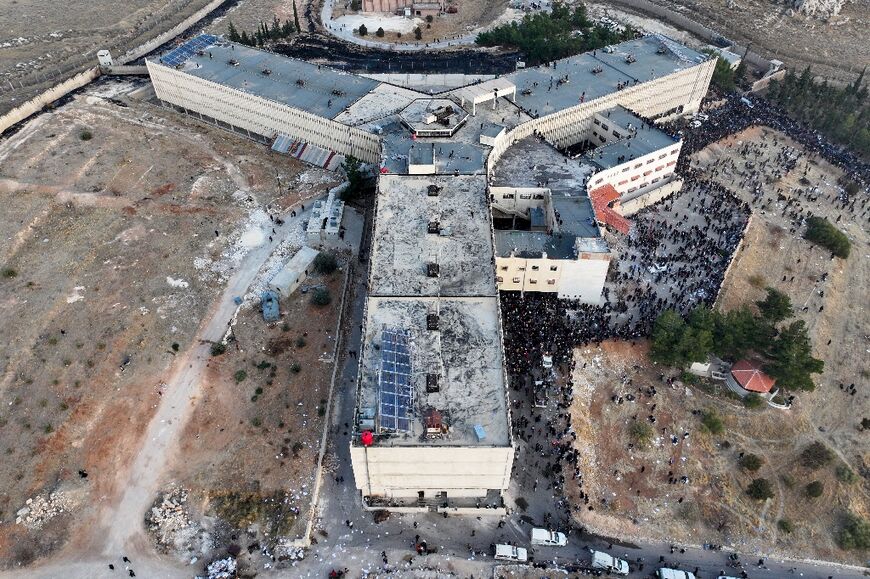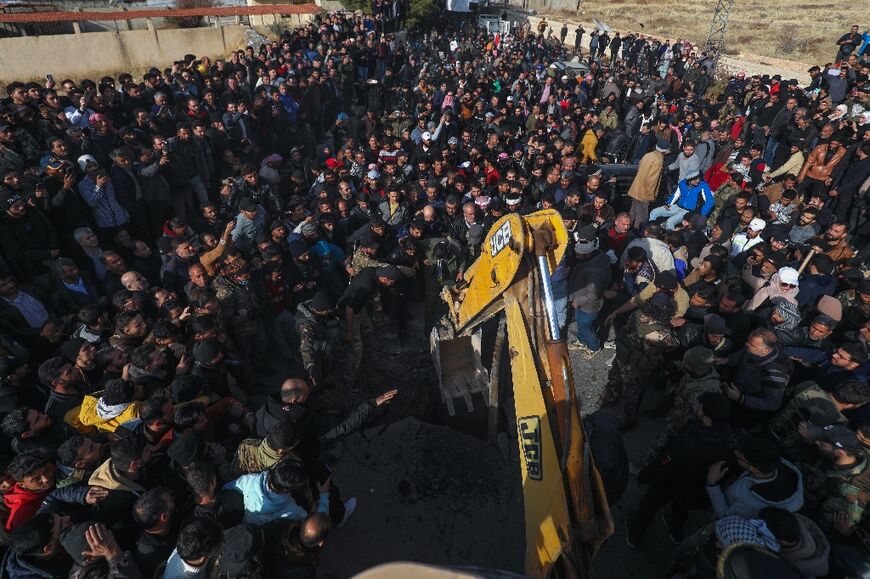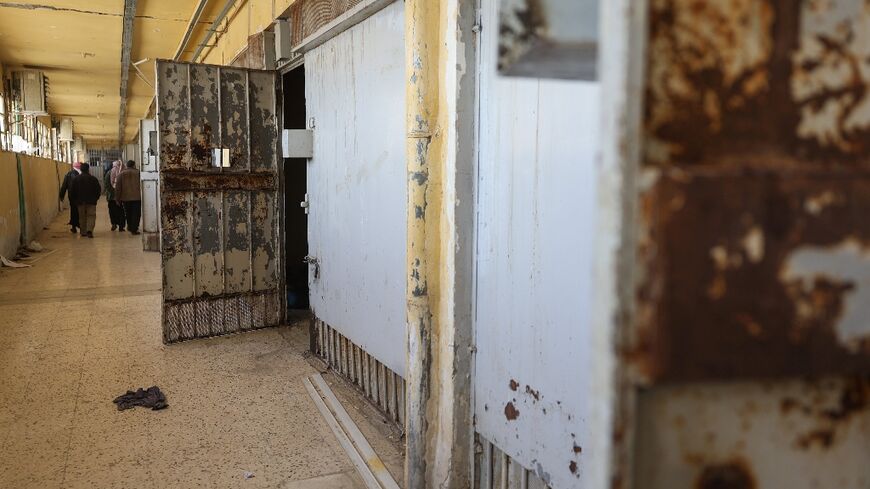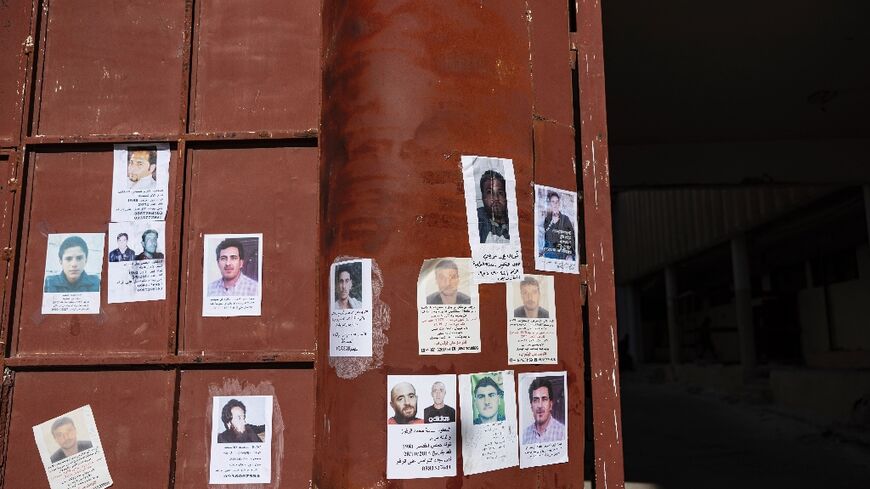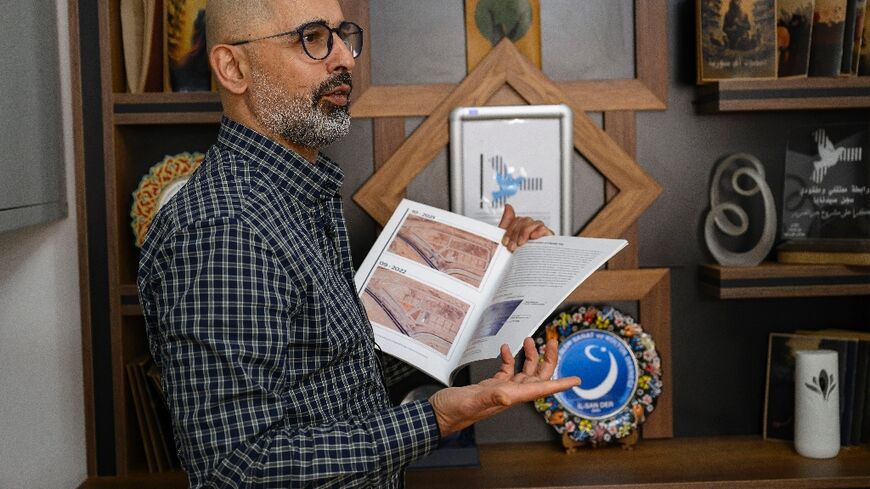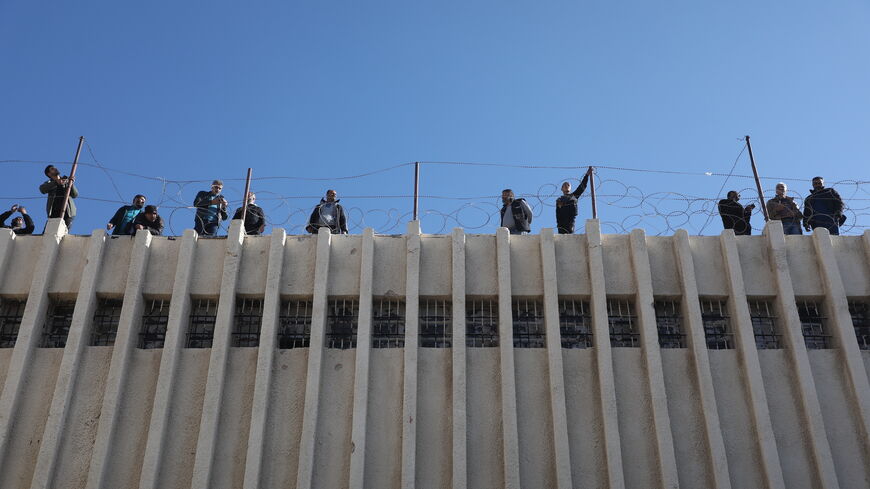Freed Syria prison sparks hope and heartbreak
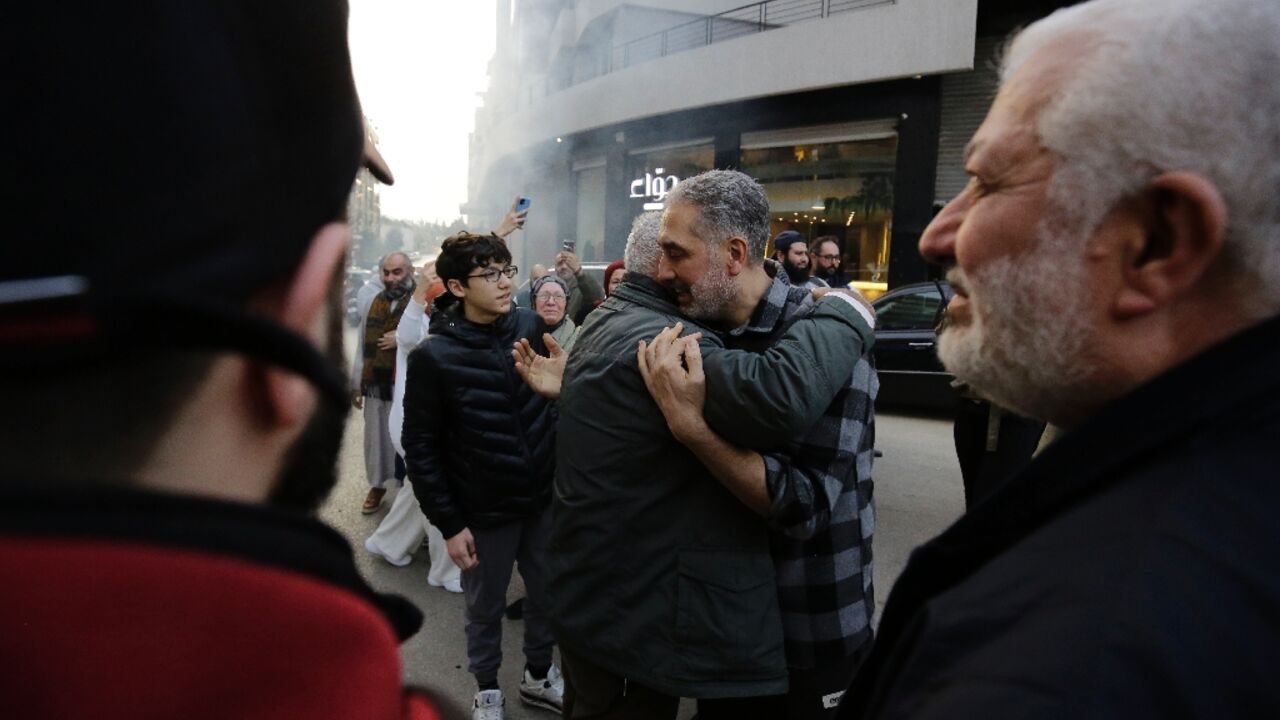
As soon as rebel forces seized Damascus, Syrians swarmed the notorious Saydnaya prison, desperate for news of loved ones who vanished under ousted president Bashar al-Assad's rule.
"I am waiting in the hope that one of my relatives will be found," said 25-year-old Youssef Matar, camped outside the feared Y-shaped prison since Sunday.
He said 10 of his family members were arrested "for no reason, just because we are from Daraya", a Damascus suburb pivotal in the 2011 uprising.
"I'm going to stay until I know if they're dead or alive."
The prison's liberation came hours after Islamist group Hayat Tahrir al-Sham and allies took Damascus on Sunday, forcing Assad to flee after more than 13 years of war.
Thousands flocked to Saydnaya, a grim symbol of some of the regime's atrocities, with a line of cars stretching over seven kilometres (4.4 miles) a day later.
Some walked for hours to reach the hill where the infamous building stands, climbing over the sand barricades surrounding it.
On Monday night, families huddled around campfires outside, braving the cold as they waited.
- 'We've looked everywhere' -
Since the 2011 uprising that sparked the war, more than 100,000 people have died in Syrian prisons, often under torture, according an estimate from to the Syrian Observatory for Human Rights in 2022.
The Britain-based war monitor also said about 30,000 people had been detained at Saydnaya, where detainees endured some of the worst torture, with only 6,000 released.
Videos on social media showed dozens of gaunt men emerging from the dark holding cells, some too weak to walk and carried out of the prison by their fellow inmates.
Hundreds of family members entered the prison through its narrow doors.
Those unable to locate their loved ones rummaged through documents scattered on the ground in search of their names.
"I'm looking for my brother, who has been missing since 2013. We've looked everywhere for him, we think he's here, in Saydnaya," said Umm Walid, 52, who refused to give her full name.
"Since Bashar is gone, I'm optimistic. The fear is over," she added.
- 'He was alive' -
Many remain convinced they are in secret underground dungeons.
The White Helmets, a rescue organisation, said they are looking for "hidden underground cells", before announcing on Tuesday the end of search operations at Saydnaya without finding further detainees.
Amnesty International has dubbed Saydnaya a "human slaughterhouse", recording thousands of executions in the prison.
The London-based rights group said the prison was designed to "exterminate" inmates.
Mohammad al-Jabi, 40, was searching for four of his relatives at the facility.
"They were all arrested on terrorism charges, including my nephew, who was 14 at the time," he said.
"They took them from their homes and we visited them once. Then they told us they were dead and asked for their ID cards," he added.
But "they didn't give us any proof, and we still hope they are alive."
Most of the detainees who had not been released were officially considered missing, with their death certificates rarely reaching their families unless exorbitant bribes were paid, as part of a widespread corruption.
Khaled Attieh, 55, was searching for his brother, who had been held in the prison since 2012.
"We came to visit him. He was alive," he said. That was six years ago.
